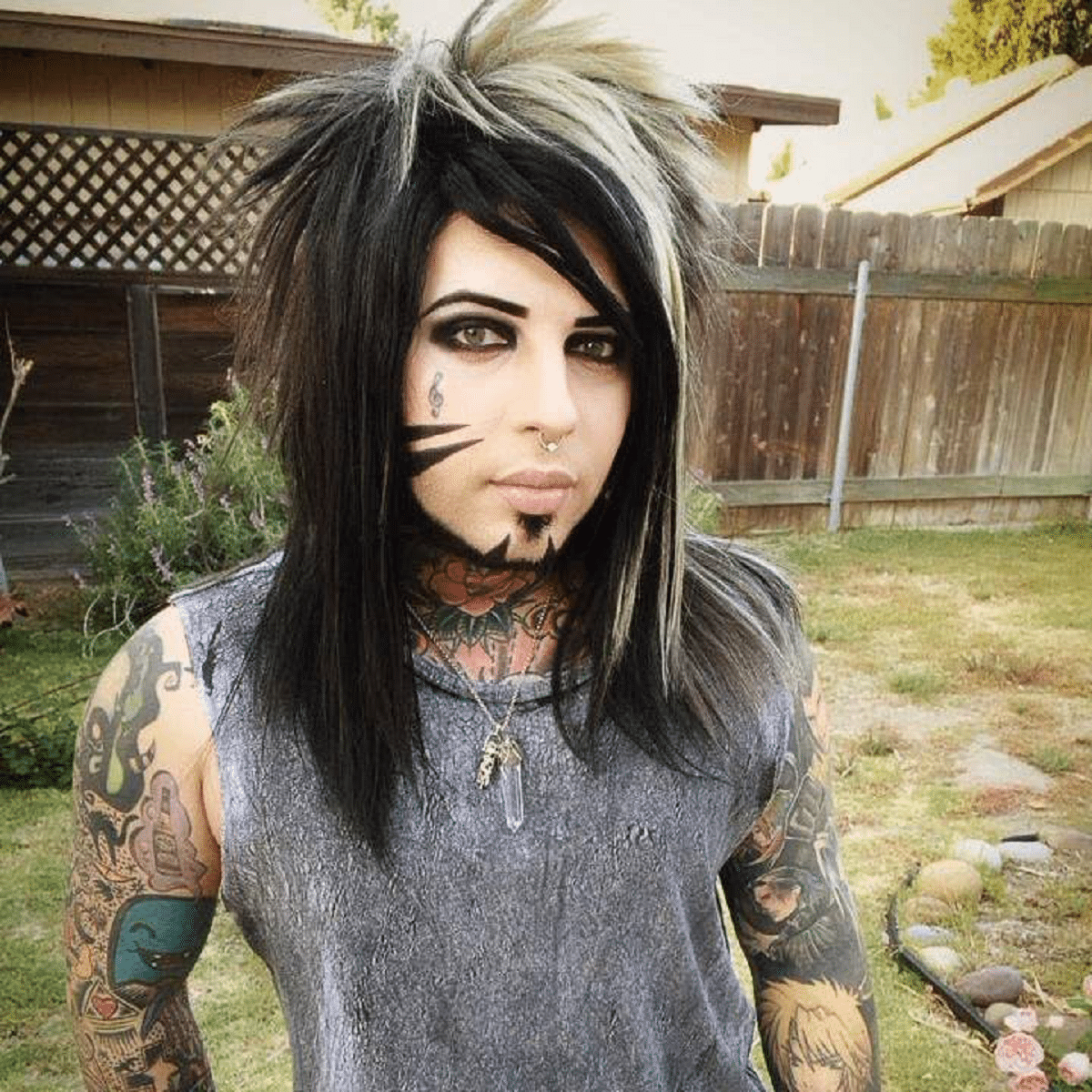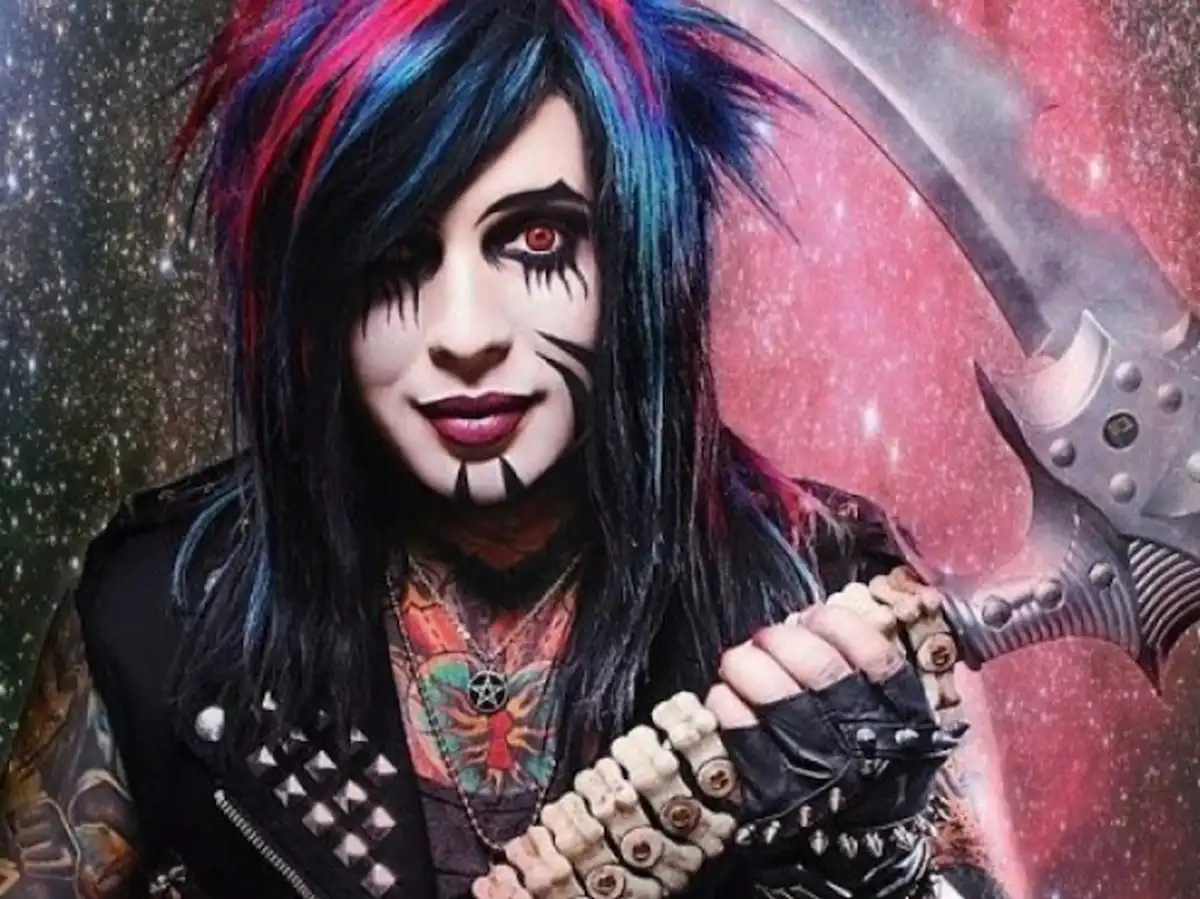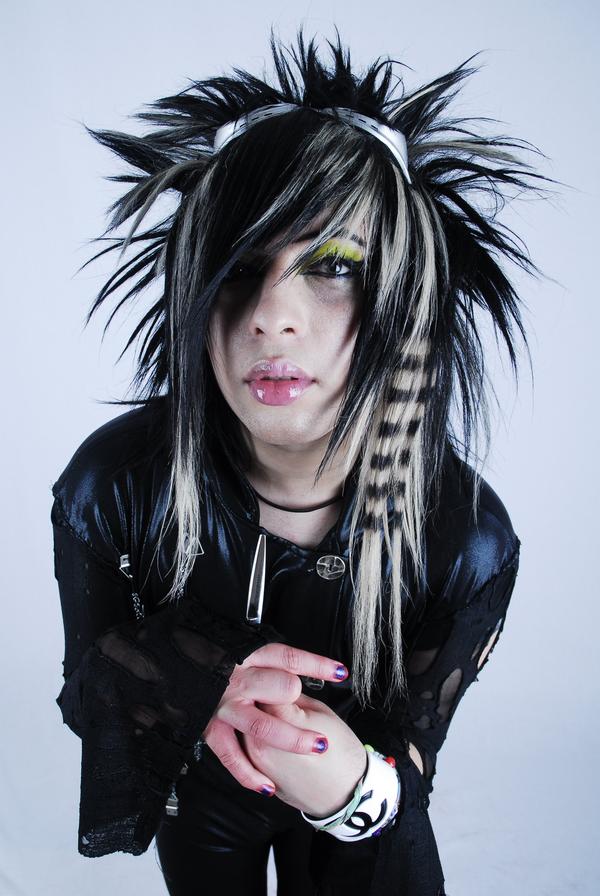When we talk about certain public figures, especially those connected to music and online communities, the discussions can often feel quite intense, perhaps a bit unsettling for some. There's a particular kind of discomfort that can arise when the conversation shifts from artistic output to personal conduct, and that's certainly the case for many when the name Dahvie Vanity comes up. People hold a variety of views, and how these stories are shared seems to really matter to folks.
For some, listening to broad commentary about this individual, or so it appears, just doesn't sit right. They might prefer to hear accounts directly from those who claim to have been harmed. It’s almost as if, in some respects, there's a desire for the most direct, unfiltered narratives possible, rather than interpretations from those who weren't personally involved. This preference, you know, highlights a deeply felt need for authenticity and a focus on the experiences of others.
The history surrounding Dahvie Vanity, or Jesus David Torres, is, as a matter of fact, quite long-standing, with various claims and discussions circulating for a considerable period. It’s a situation where, apparently, information has been out there for a good while, but the way it has been received and dealt with by different groups has varied, sometimes quite significantly. This ongoing conversation, with its many layers, continues to be a point of considerable discussion among those who follow these sorts of events.
Table of Contents
- Who Is Dahvie Vanity - A Personal Overview
- Why Do Some People Avoid Certain Discussions About Dahvie Vanity?
- The Dragula Connection - Dahli and Dahvie Vanity
- What Have People Known About Dahvie Vanity's Actions Over Time?
- Jeffree Star's Statements and Collaborations with Dahvie Vanity
- Is There an Ongoing Investigation Into Dahvie Vanity?
- The Evolving Musical Identity of Dahvie Vanity
- How Do Fans and Observers React to Dahvie Vanity's New Projects?
Who Is Dahvie Vanity - A Personal Overview
When we talk about Dahvie Vanity, we are really talking about Jesus David Torres, a person whose public image has, over time, become quite entangled with a series of very serious claims. He's known for his involvement in various music projects, most notably as a member of a group called Blood on the Dance Floor. However, the conversations surrounding him extend far beyond his creative work, often touching upon deeply personal and troubling accusations. It’s a situation where, you know, the individual's identity is very much tied to the public discourse about his reported actions.
From what's been shared, he was, in one instance, described as a grown person allegedly causing distress to a child, which is, obviously, a very serious kind of statement to make about someone. This particular claim, among others, has added considerably to the public's perception of him. People who follow these stories often point to such instances as key moments in the unfolding narrative surrounding him. It seems that, in many ways, these personal details and accusations have shaped how he is viewed by the public, perhaps even more than his musical endeavors.
The information available about his personal background is, admittedly, somewhat limited in the public eye, often surfacing through the accounts of others rather than through official biographical sources. What we do know tends to come from people who have had direct experiences or observations related to him. This makes assembling a complete picture, a bit of a challenge, as it relies heavily on fragmented accounts and shared stories rather than a single, clear narrative. Still, the pieces that have emerged paint a particular kind of picture for many observers.
| Category | Detail |
|---|---|
| Full Name | Jesus David Torres |
| Known For | Music projects, particularly Blood on the Dance Floor |
| Reported Allegations | Abusive behavior, sexual predator claims |
| Associated Acts | Blood on the Dance Floor, Neon Zombie (among others) |
| Current Status | Subject of an ongoing criminal investigation |
Why Do Some People Avoid Certain Discussions About Dahvie Vanity?
There's a noticeable pattern, apparently, where some individuals express a strong dislike for watching general commentary videos about Dahvie Vanity. It's almost as if they find these discussions, when presented by certain online personalities, to be, in a way, unhelpful or even frustrating. Instead, these same people often state a preference for watching content created by those who identify as his victims. This suggests a very clear distinction in what kind of information or perspective they seek out.
The reasoning behind this preference seems to stem from a desire for authenticity and direct accounts. When commentary channels talk about Dahvie Vanity, some viewers feel, perhaps, that the focus can shift too much from the experiences of the affected individuals. It's like, you know, they want to hear the story directly from the source, rather than through a secondary interpretation. This approach, in some respects, prioritizes the voices of those who claim to have lived through the events, offering a different kind of insight that general commentary might miss.
This preference also speaks to a broader point about how stories of alleged harm are consumed and processed online. For many, the raw, personal accounts carry a weight that more detached analyses might lack. It’s not just about getting information; it’s about connecting with the human aspect of the situation. So, people might feel that by focusing on victim-made videos, they are giving proper attention and respect to the individuals whose lives have, reportedly, been impacted. It’s a very specific choice in how one engages with such serious topics, really.
The Dragula Connection - Dahli and Dahvie Vanity
For those who follow the show Dragula, particularly fans of season two, there's a specific piece of information that ties into the discussion around Dahvie Vanity. Dahli, a contestant from that season, once shared details about a past connection to Blood on the Dance Floor, which was Dahvie's band. This revelation was made in an episode, and it was quite a moment for those paying close attention to the show and the broader music scene. It just kind of came out, you know, as a significant point of personal history.
During that episode, Dahli mentioned a former bandmate who had been abusive. This reference, as many viewers understood it, was directed at Dahvie Vanity. It served as a public acknowledgement, in a very prominent setting, of the alleged difficulties and harm that some individuals reportedly experienced while associated with him. This particular statement, in a way, brought a long-standing set of claims into the mainstream, making more people aware of the accusations that had been circulating. It was, arguably, a powerful moment for many who had followed the story for some time.
The mention on a popular television program like Dragula gave the claims a different kind of visibility. It wasn't just online discussions or whispers anymore; it was part of a contestant's personal narrative on a widely viewed show. This kind of public statement, naturally, can lead to increased awareness and further discussion among a broader audience who might not have been familiar with the situation before. It just shows how, sometimes, these connections can pop up in unexpected places, bringing a lot of attention to very serious matters.
What Have People Known About Dahvie Vanity's Actions Over Time?
It appears that concerns about what Dahvie Vanity was allegedly doing have been circulating for a considerable period, for a very long time, actually. This isn't, by any means, a new development; rather, it's a situation where information and claims have been shared and discussed for years within certain circles. People have, so it seems, been aware of these reported actions, or at least the allegations surrounding them, for a good while. This long-standing awareness suggests a persistent pattern of reported behavior that has raised alarms among many observers.
A significant part of this ongoing narrative involves claims that individuals associated with him, whether they were friends, groupies, or other close connections, allegedly worked to silence those who came forward. The idea is that these individuals would, reportedly, bully or intimidate alleged victims into withdrawing their statements or making them seem untrustworthy. It’s a very concerning aspect of the claims, as it suggests a concerted effort to suppress information and discredit those who spoke out. This pattern, if true, would explain why some of these issues have persisted for so long without, perhaps, gaining broader public attention until more recently.
This alleged dynamic of silencing others, you know, makes the situation even more difficult for those who might have been affected. It creates an environment where speaking up could be met with significant pushback, making it incredibly challenging for individuals to share their experiences freely. So, the long history of these claims, coupled with the reported attempts to suppress them, paints a picture of a deeply entrenched problem that has, apparently, affected many people over the years. It's a complex web of interactions that has kept these stories circulating for a considerable amount of time.
Jeffree Star's Statements and Collaborations with Dahvie Vanity
The story of Jeffree Star's involvement with the claims against Dahvie Vanity is, in a way, quite a notable part of the broader narrative. Back in 2010, Jeffree Star reportedly spoke out, accusing Dahvie Vanity of being a sexual predator. This was a very public statement, coming from a figure with a significant online presence, and it drew a lot of attention at the time. It was, arguably, one of the earlier prominent voices to publicly address these serious allegations. This kind of public accusation from someone well-known really seemed to make an impact, you know, for many people following the situation.
However, what happened next was, perhaps, quite surprising to many who had followed the initial accusation. Four years after making those serious claims, Jeffree Star reportedly collaborated with Dahvie Vanity on a project. This collaboration, naturally, raised a lot of questions and confusion among observers, especially those who remembered the earlier statements. It left many wondering about the consistency of the message and the nature of the relationship between the two individuals. It’s a detail that, as a matter of fact, complicates the public perception of the situation quite a bit.
As of now, Jeffree Star's current opinions or feelings about Dahvie Vanity are, apparently, not publicly known. There hasn't been, so it seems, any clear or recent statement from him clarifying his position or explaining the past collaboration in light of his earlier accusations. This lack of current information leaves a gap in the narrative for many who are trying to understand the full scope of the situation. It means that, for those interested, the exact nature of their relationship and Jeffree Star's views on the allegations remain, essentially, a point of uncertainty.
Is There an Ongoing Investigation Into Dahvie Vanity?
There is, apparently, an online community, a subreddit specifically, that has taken on the task of bringing to light the actions attributed to Dahvie Vanity, or Jesus David Torres. This particular group is, so it seems, dedicated to what they describe as "exposing the monster Dahvie Vanity" and, very importantly, keeping up with the ongoing criminal investigation against him. This suggests that the concerns are not just confined to online discussions but have, in fact, moved into the legal system. It's a clear indication that the claims are being taken very seriously by some, leading to formal processes.
One specific incident that is often mentioned as particularly troubling involves what Dahvie reportedly did to an entire family. The details are, from the available text, not fully laid out, but the description suggests a truly terrible impact on these individuals. It’s a point that, you know, really emphasizes the human cost of the alleged actions. This kind of statement, about a whole family being affected, points to a ripple effect of harm that extends beyond just one person, painting a very distressing picture of the situation.
Furthermore, there's a deeply disturbing claim that Damien's father, a person connected to these events, passed away due to a heart attack not long after a particular incident referred to as the 'you done goofed' situation. While the exact connection between Dahvie's alleged actions and this tragic event is not explicitly detailed, the proximity in time suggests a very serious and upsetting chain of events for those involved. It’s also noted that Dahvie was, at the time of an alleged attack, a grown person reportedly causing harm to a child. This particular point, about an adult allegedly acting against a younger person, is, naturally, seen as a very grave aspect of the accusations, adding considerable weight to the overall concerns about his conduct.
The Evolving Musical Identity of Dahvie Vanity
Over the years, Dahvie has, apparently, made several changes to the name of his musical group and has also started different music projects under various different names. It’s almost as if he has, in a way, continually reinvented his musical presence, perhaps to explore new sounds or, some might argue, to distance himself from past associations. This pattern of changing names and launching new endeavors is, you know, a notable characteristic of his artistic path. It suggests a constant shift in how he presents his music to the public.
These various names and projects have, naturally, been compiled by some observers, perhaps for clarity or to keep track of his creative output. It helps, in some respects, to have a record of these different identities, especially for those who have followed his work for a long time. For example, the name "Neon Zombie" has been seen floating around, indicating one of his more recent musical ventures. This tendency to switch things up keeps people guessing about what he might do next, musically speaking.
The names he chooses for his new songs and projects sometimes elicit strong reactions from the public. There was, for instance, a situation where the name of a new song from Dahvie Vanity of Blood on the Dance Floor was, apparently, found quite humorous by some, with one person commenting "Lmao look at the name... creepy guy." This kind of reaction shows how his musical choices, even just the titles, can be perceived in different ways, sometimes drawing comments about his persona or past. It’s clear that, for many, his musical identity is very much intertwined with the broader discussions about him.
How Do Fans and Observers React to Dahvie Vanity's New Projects?
When Dahvie Vanity releases new music or starts a different project, the reactions from people who follow his work, or just observe from a distance, can be quite varied. It's not uncommon, for example, for people to notice the names of his new songs or bands and comment on them, sometimes with a mix of amusement and a bit of unease. There was, you know, that particular instance where someone saw the name of a new song and, basically, found it quite telling, even calling him a "creepy guy" in response. This kind of immediate, personal reaction is, arguably, very common when his new work surfaces.
The appearance of names like "Neon Zombie" in public discussions also shows how people are, apparently, keeping an eye on his various musical endeavors. It’s like, you know, these names just pop up, and people who are familiar with his history or the ongoing claims against him take note. This constant observation suggests a level of public interest that goes beyond just the music itself, often extending to the person behind the projects. It's not just about the sound; it's about the context that surrounds Dahvie Vanity, really.
These reactions, whether they are humorous or more critical, highlight the ongoing public conversation about him. Every new release, every new band name, seems to serve as a fresh point for people to discuss his past, his alleged actions, and his continued presence in the music scene. So, it's pretty clear that for many, his musical output cannot be separated from the broader narrative that has developed around him over time. It’s a situation where, in some respects, the art and the artist are very much linked in the public mind, especially given the serious nature of the claims.
This article has explored various facets of the public discourse surrounding Dahvie Vanity, touching upon the preference some individuals have for victim-focused accounts over general commentary. We looked at the specific mention of him by Dahli from Dragula season two, highlighting the claims of an abusive past bandmate. The long-standing awareness of alleged actions and the reported attempts by associates to silence those who spoke out were also discussed. We covered Jeffree Star's past accusations and subsequent collaboration, noting the unknown nature of his current views. The article also touched upon the ongoing criminal investigation, the tragic events involving Damien's family, and the shifting identities of Dahvie Vanity's musical projects, including the "Neon Zombie" name, and the public's reactions to these changes.


